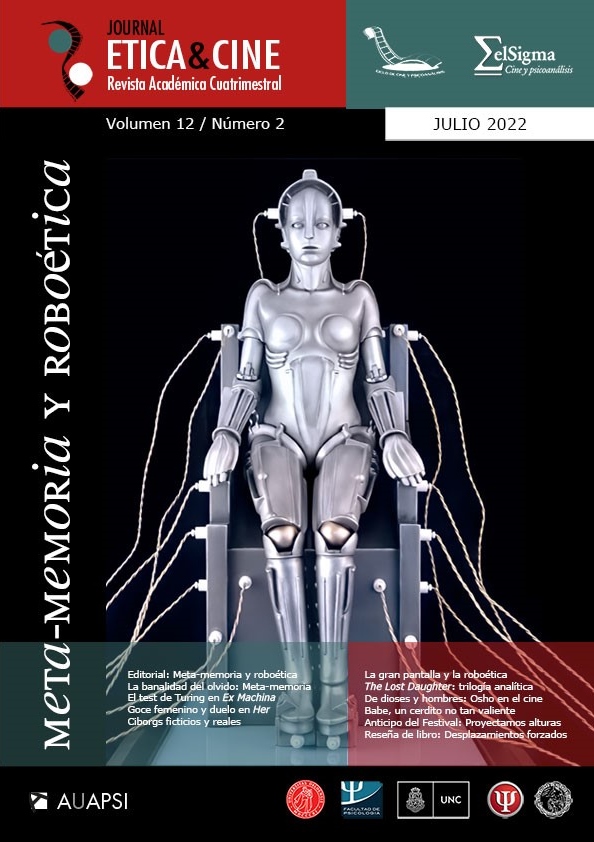The banality of oblivion. Meta-memory in the 2020’s cinema
DOI:
https://doi.org/10.31056/2250.5415.v12.n2.38324Keywords:
Historical memory, Meta-memory, Violence, Grief, CommunityAbstract
In recent years, a series of films have emerged, in which the main characters are required to confront processes of historical consciousness, but in which they are also forced to confront other characters who are opposed to keeping historical memory alive. Thus, cinema becomes a space for theoretical reflection about the relevance of developing processes of historical memory today. In this text, these films will be analyzed trying to unravel the ethical and psychological consequences of keeping the memory of violence and harm alive, and also analyzing the role that cinema plays when it comes to theorizing about the positions that we can adopt towards historical memory.
References
Benjamin, W. (1989). Discursos interrumpidos I. Taurus.
Benjamin, W. (1991). El narrador. Taurus.
Benjamin, W. (1992). Para una crítica de la violencia y otros ensayos. Taurus.
Broncano, F. (2013). Sujetos en la niebla. Narrativas sobre la identidad. Barcelona.
Butler, J. (2006). Vida precaria. El poder del duelo y la violencia. Paidós.
Butler, J. (2009a). Frames of War. Verso.
Butler, J. (2009b). Dar cuenta de sí mismo. Amorrortu.
Cavarero, A. (2000). Relating narratives. Routledge.
Coetzee, J. M. y Kurtz, A. (2015). El buen relato. Conversaciones sobre la verdad, la ficción y la terapia psicoanalítica. Penguin Random House.
Sontag, S. (2003). Ante el dolor de los demás. Alfaguara.
Velleman, D. (2003). The Narrative Explanation, The Philosophical Review, (112), 1-25.
Velleman, D. (2006). Self to Self. Cambridge University.
Downloads
Published
Issue
Section
License
Copyright (c) 2022 Ética y Cine Journal

This work is licensed under a Creative Commons Attribution-ShareAlike 4.0 International License.
Los autores que publiquen en Ética y Cine Journal aceptan las siguientes condiciones:
Los autores/as conservan los derechos de autor © y permiten la publicación a Ética y Cine Journal, bajo licencia CC BY-SA / Reconocimiento - Reconocimiento-CompartirIgual 4.0 Internacional. La adopción de esta licencia permite copiar, redistribuir, comunicar públicamente la obra, reconociendo los créditos de la misma, y construir sobre el material publicado, debiendo otorgar el crédito apropiado a través de un enlace a la licencia e indicando si se realizaron cambios.

Este obra está bajo una licencia de Creative Commons Reconocimiento-CompartirIgual 4.0 Internacional.




